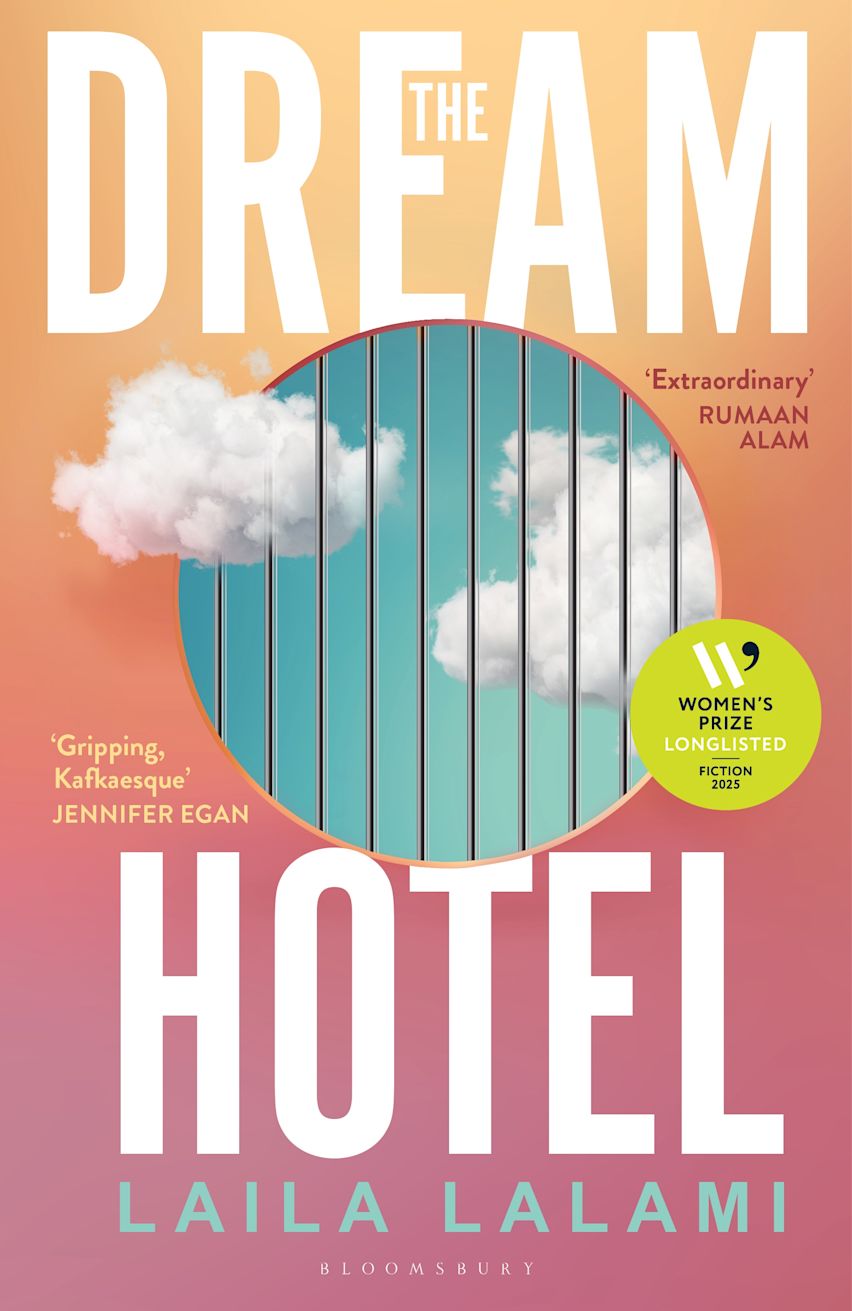Laila Lalami
Dream Hotel
Dream Hotel
Couldn't load pickup availability
Susan Midalia's Review
The Dream Hotel is the fifth novel by acclaimed Moroccan American writer Laila Lalami, and what an eerily prescient narrative it is. Set in a Los Angeles prison centre in the not-too-distant future, this dystopian novel creates a nightmare world of surveillance that feels frighteningly close to current social and political practices.
At the heart of the story – technologically, ethically and politically - is a device called Dreamsaver, a neuroprosthetic tool for ensuring high-quality sleep. This has been a boon for the novel’s central character Sarah Hussein, a young, chronically insomniac mother of toddler twins who is also trying to maintain her career as a museum archivist. Unknown to Sarah, however, is the existence of a clause added by the company that owns the device which allows for the extraction and sale of its users’ biometrical data, including the content of their dreams. She only becomes aware of this when, returning from a conference in London to LA, her dream of poisoning her husband is detected by the Risk Assessment Administration and, in a practice that echoes both a credit rating and China’s social credit system - a government-led initiative designed to track and evaluate the trustworthiness of individuals and businesses – she is deemed guilty of intending to commit a crime and consequently incarcerated in the ironically named Dream Hotel.
Sarah’s time in the euphemistically called ‘retention’ centre dominates the narrative. While detainees are required to remain there for twenty-one days for ‘re-education’ purposes, the deadline is constantly extended by Safe-X, the company that runs the facilities. They thereby profit from the indefinite postponement of the release of detainees: a practice that surely reminds us, as Australians, of the private companies that continue to make obscene amounts of money from the indefinite detention of asylum seekers.
While The Dream Hotel has obvious affinities with Kafka’s nightmare bureaucracies and Philip K Dick’s novella The Minority Report (made into a movie by Steven Spielberg), it also forcibly reminded me of George Orwell’s novel 1984, in which the main character comes to understand that “[n]othing was your own except the few cubic centimetres inside your skull.” In Orwell’s dystopian world, the privacy of one’s thoughts is the last bastion of freedom from the forces of authoritarian repression, as well as a vital source of resistance in which people are secretly free to be critical of a brutal regime. The authorities in The Dream Hotel colonise and destroy this last remaining freedom in a practice frighteningly reminiscent of the current Trump administration’s rounding up and deportation of illegal immigrants for suspected, rather than proven, crimes. Sarah Hussein’s Moroccan origins reinforce the ideological belief that conflates immigrants with criminality.
The novel contests this invasion of an individual’s inner life by allowing us direct access to Sarah’s thoughts and feelings. It’s a deeply humanising gesture; a reminder that our inner lives are a crucial part of our identity, and a site of independent thinking. As well, the novel’s use of present tense narration creates a vivid sense of physical and emotional immediacy, making the experience of incarceration seem at once claustrophobic, absurd, and unutterably sad. What happens to Sarah Hussein, and to the regime in which and by which she is entrapped, is both a dilemma for the novel to unravel, and a question for us as citizens of the ostensibly free world to seriously interrogate.
The Dream Hotel is now available in the Lane Bookshop.
Publisher's Review
'A gripping, Kafkaesque foray into an all-too-plausible future' - Jennifer Egan
'Extraordinary' - Rumaan Alam
'Absolutely unputdownable' - Sandra Newman
Sara is returning home from a conference abroad when agents from the Risk Assessment Administration pull her aside at the airport. Using data from her dreams, their algorithm has determined that she is at imminent risk of harming her husband. For his safety, she must be transferred to a retention centre, and kept under observation for twenty-one days.
But as Sara arrives to be monitored alongside other dangerous dreamers, she discovers that with every deviation from the facility's strict and ever-shifting rules, their stays can be extended and that getting home to her family is going to cost much more than just three weeks of good behaviour . . .
The Dream Hotel is a gripping speculative mystery about the seductive dangers of the technologies that are supposed to make our lives easier. As terrifying as it is inventive, it explores how well we can ever truly know those around us even with the most invasive surveillance systems in place.
Share


